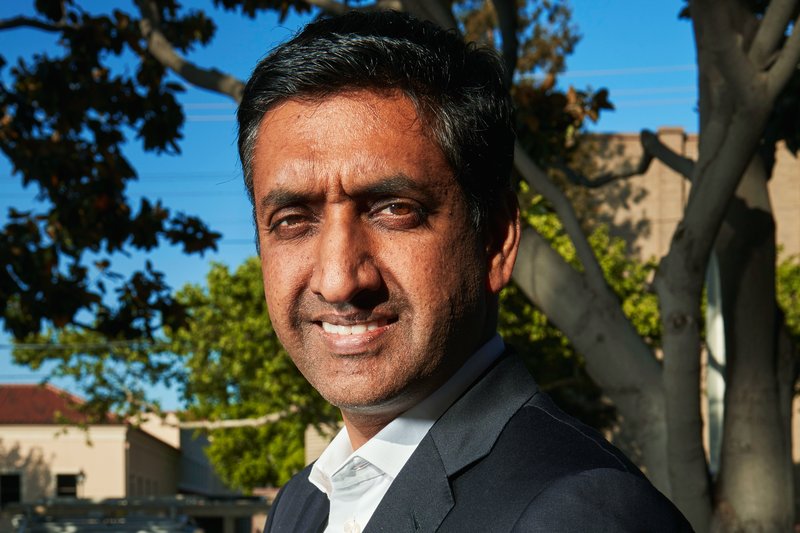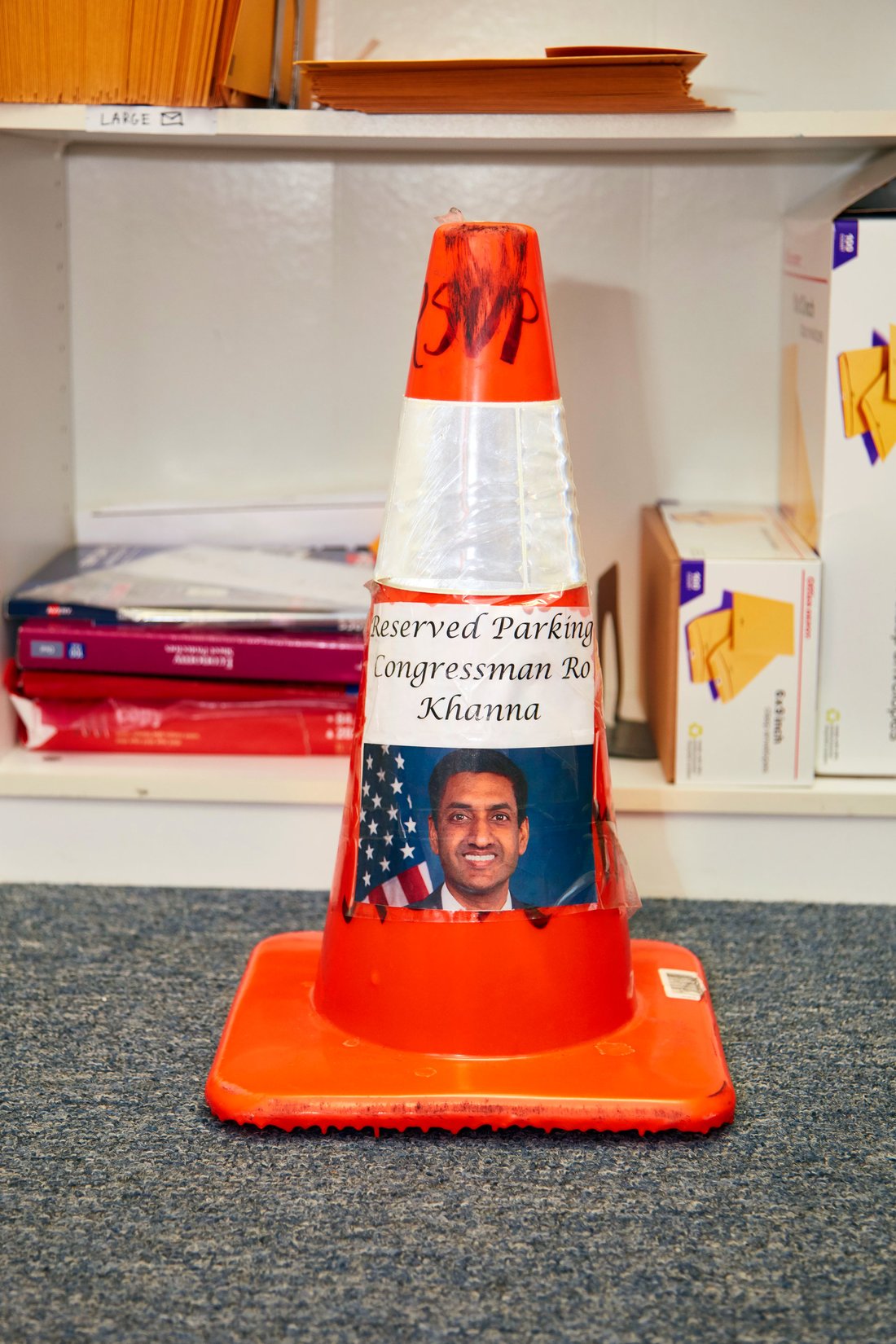
|
生活、自由,、幸福這些字眼,,放在勞務(wù)合同時自然相當乍眼。但是在硅谷,,有一位名叫羅希特·康納的人正在堅定不移地推動美國國會為《互聯(lián)網(wǎng)權(quán)利法案》立法,。你可能從未聽說過這名來自加州的新人議員,隨著他再次參選,他的大名或許很快就會火起來了,。 康納的選區(qū)里有一些城鎮(zhèn),,或許你曾經(jīng)聽說過它們的名字,比如庫比蒂諾,、弗里蒙特,、圣克拉拉、森尼維爾等等,。如果你對它們感到陌生,,只需記住,以下企業(yè)都把總部放在了上面提到的城鎮(zhèn)里,,比如蘋果、谷歌,、英特爾、甲骨文,、特斯拉等。他的選區(qū)有54%的人口是亞裔,,白人僅占29%,,也就是說外國移民比本地出生的人口還多。該地區(qū)的中位收入是121,000美元,,比全美平均水平高出兩倍以上,。在森尼韋爾市,一套面積為848平方英尺的房子的售價大概是200萬美元,。這樣看來,,康納可以說是集奇人,、奇地、奇事“三奇”于一身了,。在他的選區(qū),,光拎出蘋果這一家公司,它手里的現(xiàn)金就比美國財政部還要多,。大家不禁要問,你到底是在為人民服務(wù),,還是在為資本家服務(wù)呢,?你又該怎樣合理使用納稅人稅款呢?別忘了,,選區(qū)里除了蘋果,,還有谷歌等眾多金主。你又打算怎么去服務(wù)那些又坐私人飛機又造火箭的企業(yè)家呢,? 對此康納表示:我的屁股是坐在群眾這邊的,。康納本人雖然是斯坦福大學科班出身的正牌經(jīng)濟學家,,也有深厚的知識產(chǎn)權(quán)法領(lǐng)域的經(jīng)驗,,但他認為,,有必要把硅谷從神壇上請下來,如果一個政策不能用勞動人民的語言解釋清楚,,自然也就沒有常識和共識可言,。 鮮為人知的是,,康納還是美國眾議院反壟斷小組會議的創(chuàng)始人之一,,曾經(jīng)對亞馬遜收購全食公司,、AT&T收購時代華納等收購案發(fā)動過反壟斷調(diào)查,,但也有意無意地放過了蘋果,、Facebook和谷歌等硅谷公司的收購案,。特朗普上臺之后,,為了對新總統(tǒng)表忠心,,蘋果稱要向美國國內(nèi)投資3500億美元,??导{則馬上跳出來啪啪打臉,,表示蘋果能拿出350億美元就不錯了,。對于Facebook收購Instagram和WhatsApp,,康納也持擔憂態(tài)度(早在美國聯(lián)邦貿(mào)易委員會對Facebook啟動反壟斷調(diào)查前很久,,他就提議這樣做了),。康納曾經(jīng)說過:“有些硅谷的工程師可以說是人類有史以來最自負的人,?!焙髞硭f他這番話是開玩笑,,但他從未表示這個玩笑是假話,。他還建議國家對企業(yè)征收裁員稅,還表示讓企業(yè)破產(chǎn)相當于“核打擊選項”,。當上議員才兩個月,他就以涉嫌“隱蔽壟斷”為由,,對俄亥俄的一家國防承包商發(fā)起了反壟斷調(diào)查,。 沒錯,,看他的畫風,,就知道他必然是個民主黨了,。不久他就將代表民主黨參加加州第17選區(qū)的選舉,。從目前來看,他成功連任應(yīng)該是沒什么問題的,,畢竟他是一個有多重BUFF加身的男人,。雖然他是個印度移民,但是他的條件放在整個國會山也是毫不遜色的,。像41%的國會議員一樣,,他有一個法學學位(來自耶魯);像39%的議員一樣,,他是個百萬富翁??导{很支持國會對議員的任期限制(即最長任職不超過12年,,這樣有國會里大量議員干滿任期就要走人了)??导{還與議員貝托·歐洛克共同成立了一個“NO PAC”小組,,倡議大家不要通過“政治行動委員會”這樣的臨時機構(gòu)搞政治籌款。他的個人身家為2700萬美元,,是加州議員中排名第四的富豪,,不過這主要歸功于他的老婆——一家投行的繼承人。不過康納還有5萬美元的學生貸款沒有還完,。(康納表示,,這是因為“我和我老婆是經(jīng)濟獨立的,。”)在采訪中,,他不時援引貝恩和麥肯錫的研究,,信手拈來幾句托克維爾和德國哲學家哈貝馬斯的名言,儼然仿佛《白宮風云》編劇阿倫·索爾金筆下的人物,,又似一朵不一樣的煙火,。他是一位極為聰明又敢于反抗權(quán)威的人,而他的政壇之路才剛剛開始,。 當然,,也不是每個人都這么想?!端拇缶揞^:亞馬遜,、蘋果、Facebook,、谷歌的隱藏DNA》一書的作者斯科特·加洛韋表示:“康納是一個聰明人,,一個有思想的人,但他不是個合格的國會議員,,實際上,,無論誰坐在他的位子上,都不會上個合格的議員,。那個位子其實是屬于大科技公司的?,F(xiàn)在有10部iPhone預(yù)裝了Safari瀏覽器,20億部安卓(Android)手機預(yù)裝了YouTube,,但是康納關(guān)心的是推動整個科技行業(yè)的整合,而這件事會足足影響1.3億人,。他更關(guān)心的是AT&T會不會收購卡通頻道這種事,,而美國中產(chǎn)階級并不希望硅谷掌控人們的一切。普通美國人希望打破蘋果,、谷歌,、亞馬遜和Facebook對他們生活的主宰,,而且他們希望這件事10年前就做到,。但我不認為康納會報有同樣的想法,,畢竟你不能指望一位煙草行業(yè)出身的議員去推動禁煙,也不能指望全美步槍協(xié)會去主動禁槍,。” 在《財富》雜志于加州和華盛頓等地對康納持續(xù)數(shù)日的采訪中,,我們發(fā)現(xiàn),,康納對自己的要求是很高的,,他絕不滿足于做一位后奧巴馬時代的普通民主黨議員,。目前在國會的435個席位中,,擁有計算機科學學位的議員只有一位,。康納也不懂編程,,但他希望做整個科技行業(yè)的代言人,,引導(dǎo)我們共同的數(shù)字化的未來,。作為唯一一位曾經(jīng)成功推動過立法的民主黨新人議員,,康納也是個堅定的行動派,。他承認,,在21世紀的美國,,硅谷的影響力不可能被僅僅限制在舊金山灣區(qū),,就像19世紀的銀行業(yè)必然要走出紐約,,20世紀的制造業(yè)必然要走出底特律,、電影業(yè)必然要走出好萊塢一樣,。 他也在亞利桑那、肯塔基,、密歇根,、俄亥俄,、田納西等州四處為科技公司奔走代言??导{稱自己是國會的“硅谷之魂”,,既懂高科技的魔力,,又有藍領(lǐng)工人的實干精神,。他說:“硅谷也需要伙伴,編程不是只有在硅谷才能做的。為什么不把制造業(yè)的DNA與數(shù)碼世界結(jié)合起來呢,?”他的思想其實不難理解:為什么不教煤礦工人挖掘數(shù)據(jù)呢,?為什么不教修車工人修機器人和3D打印機呢,?為什么不教農(nóng)民收獲太陽能和風能呢,?雖說他的辦公桌上放著幾本《極樂男權(quán)》(Brotopia ),、《黑金》(Dark Money)之類的書,,在電子郵件里,,他和美國前勞工部長羅伯克·瑞克談笑風生,,但可以看出,,他的科技世界觀似乎多少受了杜波伊斯的黑人理智主義思想影響。話說回來,,康納最近確實剛剛讀完了杜波伊斯1903年的著作《黑人的靈魂》(The Souls of Black Folk),。 |
Life, liberty, and the pursuit of happiness make for an awful Terms of Service contract. But Rohit “Ro” Khanna is adamant about pushing an Internet Bill of Rights. The freshman representative from California is the most noteworthy member of Congress you’ve never heard of. ?As he seeks reelection, that’s about to change. His district includes some towns you might know—Cupertino, Fremont, Santa Clara, Sunnyvale—and some corporate headquarters you definitely know: Apple, Google, Intel, Oracle, Tesla. The district is 54% Asian and 29% white. It has more foreign-born residents than native-born. The median income is $121,000, more than twice the national average; an 848-square-foot home in Sunnyvale recently sold for $2 million. It’s Anytown, USA, circa 2080—making Khanna a weird guy in a weird district on a weird mission. When Apple, which has more cash on hand than the U.S. Treasury, is located in your constituency, is serving it still an act of public service? A smart use of taxpayer dollars? Okay, Google, all set? Yeah, thought so. How do you serve entrepreneurs with a private space fleet? Here’s a disruptive idea: You don’t. Armed with expertise in intellectual-property law and experience as a Stanford economist, Khanna aims to de-jargonize Silicon Valley with the belief that if a policy cannot be explained in laypersons’ language, then it is not common sense. Yes, Khanna was one of the creators of the Antitrust Caucus, attacking Amazon’s Whole Foods takeover and the AT&T–Time Warner merger, while letting Apple, Facebook, and Google slide by. But he is quick with the receipts on Apple’s boast of bringing $350 billion back to the U.S. It’s more like $35 billion, he says. And Khanna is wary of Facebook’s ownership of Instagram and WhatsApp (he advocated for a stronger, tougher Federal Trade Commission long before it launched an investigation into Facebook). He says he was joking when he said “some of the engineers in the Valley have the biggest egos known to humankind,” but he never says the joke is untrue. He floats the idea of a job displacement tax on corporations but also calls breaking up companies “the nuclear option.” Two months into the job, he helped trigger the investigation of an Ohio defense contractor for operating as a “hidden monopolist.” The one predictable thing about Khanna is that he’s a Democrat representing California’s 17th Congressional District. The rest is up for grabs, and so far, it’s been a hell of a grab. Forty-one, Hindu, and of Indian descent, the economist sticks out on Capitol Hill—though like 41% of Congress, he has a law degree (from Yale) and, like 39% of Congress, he’s a millionaire. Khanna favors congressional term limits (12 years, which would wipe out huge swaths of Congress) and cocreated a No PAC Caucus consisting of, for now, just Khanna and Rep. Beto O’Rourke. With a net worth of $27 million, he is the fourth-richest member of California’s delegation (thanks to his heiress wife) but maintains $50,000 in student debt because, he says, “We keep separate finances.” He cites Bain and McKinsey studies or Alexis de Tocqueville quotes like he’s doing a walk-and-talk in an Aaron Sorkin script, and casually references German philosopher Jürgen Habermas during his “office hours” listening sessions with constituents at a Panera Bread across from a Party City. He is a whip-smart firecracker of defiance, and he is just getting started. Not everyone agrees. “Khanna is a smart man, a thoughtful man, but he’s not a member of Congress. Nobody in that seat is. That’s the seat we give to this lobby we call Big Tech,” says Scott Galloway, author of The Four: The Hidden DNA of Amazon, Apple, Facebook, and Google. “One billion iPhones are preloaded with Safari, and 2 billion Android phones are preloaded with YouTube, but Khanna wants to focus on a merger that affects 130 million people because it’s more important to him that AT&T doesn’t own Cartoon Network. Middle America doesn’t want to become the Silicon Anything. It wants to break up Apple, Google, Amazon, and Facebook, and it wants it done 10 years ago. But I wouldn’t expect Khanna to make that conclusion any more than I’d expect a tobacco country congressman to fight cigarettes or the NRA to push for gun control.” Over days when Fortune shadowed Khanna in California and Washington, D.C., a portrait emerged of a man who has tasked himself—in a legislative body where just one of 435 representatives has a computer science degree—with being more than a post-Obama demographic first-timer. He can’t code, but he aims to be the ambassador of our collective digital future. And, as the only freshman Democrat to have passed a bill, he wants action. He recognizes that 21st-century America can’t cloister its silicon prowess in the San Francisco Bay Area any more than 19th-century America could limit banks to New York or 20th-century America could huddle manufacturing in Detroit or filmmaking in Los Angeles. He is evangelizing the gospel of tech to Arizona, Kentucky, Michigan, Ohio, Tennessee, and anywhere else that will hear him out. Khanna positions himself as Congress’s silicon soul, marrying tech’s magic with old-school, blue-collar hustle. “Silicon Valley needs partners,” he says. “You can’t do edited manufacturing just in the Valley. Why not have the DNA of manufacturing but combine it with the digital world?” It’s not difficult to extend Khanna’s line of thought: Why not teach coal miners to mine data? Why not teach car mechanics to fix robots and 3D printers? Why not teach farmers to harvest solar and wind energy? Yet, while his desk is strewn with copies of Brotopia and Dark Money and his in-box is full of back-and-forths with Robert Reich, his digital worldview has found an unlikely framer in W.E.B. DuBois, a titan of black intellectualism who cofounded the NAACP in 1909. Khanna recently finished DuBois’s 1903 book, The Souls of Black Folk. |

|
“杜波伊斯和布克·華盛頓進行過一場很有意義的辯論,,討論黑人教育到底應(yīng)該注重技能教育,,還是更注重詩歌、哲學,、歷史和藝術(shù)等全方位的教育,。也就是說,從那時起,就出現(xiàn)了純理工與理工文史之爭,,這是一個非常令人驚訝的文化案例研究,。這些東西是我在蒂姆·菲利斯或其他人的書里看不到的?!? 總的來說,,康納希望避免大國之間在人工智能開發(fā)領(lǐng)域陷入軍備競賽,同時他也了解大眾對未知的恐懼,。“想象一下,,如果蘋果,、谷歌和英特爾都是中國公司,那還是滿可怕的,?!彼€希望科技能變得更人性化,創(chuàng)新可以更親民,。 康納的從政之路不可謂不傳奇,。1996年,還是芝加哥大學學生的康納加入了一個本地議員的助選團隊,,替議員先生挨家挨戶敲門拉選票,,讓他拉票的那個怪模怪樣的議員名叫巴拉克·奧巴馬。過了12年,,這個叫奧巴馬的家伙居然入主了白宮,。康納便拿出奧巴馬當年寫給自己的感謝信,,請求奧巴馬在政府里給自己謀個一官半職,。康納回憶道:“當時我常努力地嘗試,,非常堅持,。”最后,,奧巴馬總算想起了他,,讓康納當了美國商務(wù)部助理副部長。2014年在競選眾議院議院時,,他輸給了經(jīng)驗豐富的老議員邁克·本田,。后來康納再次參選,并取得勝利,,但期間也頗經(jīng)波折(他的助選經(jīng)理因涉嫌用黑客手段竊取電子郵件而吃了官司,,后辭職)。現(xiàn)在康納即將迎來他的首次改選。根據(jù)美國的選舉制度,,硅谷跟美國其他選區(qū)一樣,,它的這一組議員每隔兩年也是要換換血的。 |
“DuBois and Booker T. Washington had this fascinating debate about whether black education should focus on skills or on the bigger notions of poetry and philosophy and history and art,” he says. “It was STEM vs. STEAM, even back then. It’s an incredible cultural case study. So that’s what I read instead of a Tim Ferriss book or whatever.” Broadly, Khanna wants to avoid a Sputnik moment in the global race to develop artificial intelligence and is kept awake by a sweeping fear. “Imagine a world where Apple, Google, and Intel were Chinese companies,” he says. “It would be scary.” He wants tech to be more human and innovation to be more accessible. He learned from the best. In 1996 as a student at the University of Chicago—long known as a place “where fun goes to die”—Khanna knocked on doors in a local race on behalf of a fellow weirdo named Barack Obama. When Obama shot into the White House 12 years later, Khanna sent in an old letter of thanks Obama had written him and begged for a job in the administration. “I tried very, very, very hard,” he recalls. “I was very, very, very persistent.” He became deputy assistant secretary at the U.S. Department of Commerce. In 2014 he ran (and lost) against longtime representative Mike Honda. Khanna ran again and won, but under a dark cloud (his campaign manager resigned after a lawsuit accused him of email hacking). Now Khanna is up for his first reelection. In Congress, Silicon Valley, like the rest of the country, gets an OS update every two years. |

|
為了解決海外科技創(chuàng)業(yè)者難以獲得H-1B簽證赴美合法工作的難題,,2011年,有一批投資人拋出了建立Blueseed海上孵化器的計劃,。從本質(zhì)上看,,該計劃就是搞一條豪華版的販運奴隸的大船,像它停泊在舊金山外的公海水面上,,讓想到美國賺錢的國際創(chuàng)業(yè)者在船上工作,,同時他們也可持一日簽證短暫進入美國。2013年,,風投資本家蒂姆·德雷普建議將加州分割成六塊(后來又改成“三分加州”計劃),。2015年,有俄國人背景的“加州脫美”運動又鬧得一時人心惶惶,。幸好這些不靠譜的計劃都沒有付諸現(xiàn)實,。話說回來,這些腦洞都是從硅谷冒出來的,,美國的真的需要把這些不切實際的思想傳染給廣大內(nèi)陸地區(qū)嗎,? 康納的朋友、斯坦福商學院院長喬納森·萊文表示:“我是一個科技樂觀主義者,,我也樂見有一個科技樂觀主義者在華盛頓努力工作,。如果可以選擇的話,我當然選擇樂觀,?!? 隨著硅谷的男權(quán)至上、程序員至上的畸型文化漸漸褪色,,主張職場平權(quán)的MeToo運動獲得社會廣泛支持,,科技行業(yè)自身的平權(quán)意識也在覺醒。為了打破硅谷的男權(quán)壟斷,,他還在圣克拉拉大學搞了一個呼吁性別平權(quán)的研討會,,會上,他與8位有權(quán)勢的女性坐在主席臺上(除了他沒有別的男人),,她們中不乏來自Facebook,、谷歌和LinkedIn的高管。 不過他還是坐在了中間的座位上,。(財富中文網(wǎng)) 本文原載于2018年6月1日刊的《財富》雜志,。 譯者:樸成奎 |
Thank God. In 2011 investors proposed Blueseed, a fix for tech’s H-1B visa crisis that was, in essence, a luxurious slave ship anchored in international waters off the coast of San Francisco, offering tenants day passes into the country. In 2013 venture capitalist Tim Draper proposed to fracture California into six states (he later revised it to three). In 2015 the Russia-linked CalExit secession plan emerged. Does America really need that crackpot thinking infecting the hinterlands? “I’m a technology optimist, and I’m glad to see a fellow technology optimist working hard in Washington,” says Jonathan Levin, dean of Stanford’s graduate school of business and a friend of Khanna’s. “I want optimism, given the alternative.” On the bright side, the tech industry itself has galvanized an egalitarian awakening as toxic brogrammer culture gives way to leaning in and #MeToo empathy. At a gender equity panel he convened at Santa Clara University to shatter Silicon Valley’s quid bro quo, Khanna sat onstage with eight powerful women (and no men), including senior staff from Facebook, Google, and LinkedIn. He took the center seat. This article originally appeared in the June 1, 2018 issue of Fortune. |






